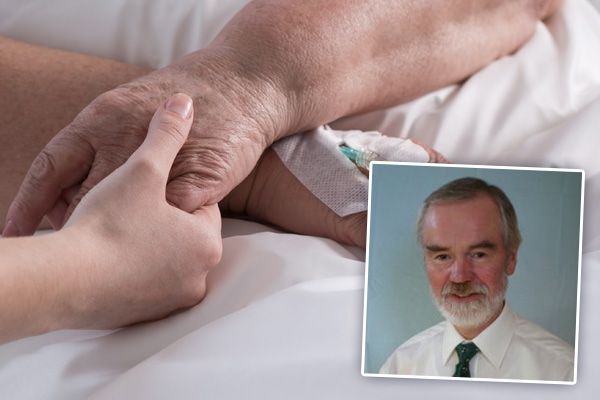

Former Health Minister and retired medical professional, Hunter Adam, has written for Express, detailing his views as the States of Guernsey enter a debate which could lead to assisted dying being legalised in the island...
As a retired Obstetrician/Gynaecologist and former Deputy, with nine years experience on Health & Social Services, I have watched with interest the current debate on Assisted Dying.
16 years ago a successful Requete in the States of Guernsey led to the setting up of a working party to investigate Death with Dignity. I was a member of that working party, assessing the complex social, legal, medical, ethical and spiritual issues involved. Although the final report of the working party recommended no change in legislation, Deputies Roffey, Quin and myself wrote a Minority Report in favour of legislating to allow assisted death on the Oregon (USA) model. The States supported the Majority Report and there was no change to the law, but there were further recommendations on provision of palliative care, advance directives and proper use of double effect medication.
During the intervening years there have been significant developments in medical treatment and in palliative care provision, particularly for cancer patients.
From the early beginnings in Bulstrode House, cancer treatment has developed in the PEH, with specialist oncology services offering integrated management of patients in hospital and the community and with links to advanced specialist services in UK.
The problem for any Political Board of HSSD/HSC is how to provide sufficient funding for services for all those who need them. This may include provision of new developments under trial for various conditions.
Hospice care has developed from private initiative, supported largely by public donation, and has grown from the 5 bed Andrew Mitchell House to the enlarged Les Bourgs Hospice opened in 2012. This provides high quality facilities for those with life-limiting illness.
Palliative care may be defined as medical care to relieve pain or suffering without dealing with the cause of the condition. It is relevant not only for those with cancer for whom further treatment would be of no significant benefit, but also those with conditions that cause progressive deterioration in quality of life prior to death.
HSC recognize the need for developments in specialist palliative care, together with community services and long-term care, to improve quality of life towards end of life.
Despite all support, there will always be those who do not wish prolongation of a life they feel to be intolerable and who would prefer to have the choice of assisted death to be included in discussion of their end of life management.
The amendment by Deputies St Pier and Trott encompasses many of the concerns expressed since the lodging of the Requete and clarifies what must be in place prior to legislation in relation to Assisted Dying.
Personally I believe their amended Requete should be accepted albeit delaying the introduction of Assisted Dying for those who may wish to have that choice sooner.
I expect the debate will consist of numerous prepared speeches, often repetitive, mostly covering points of view that have already been aired in the public domain.
Whatever the outcome the debate has brought to the forefront the challenges in how we view the quality of life in our community. Social attitudes in many areas have changed. Attitudes towards assisted death have changed with polls suggesting a move towards acceptance that this should be considered, both in the general public and among health care professionals. We respect Human Rights -the Right to Life includes the right to choose to end treatment, to have treatment withheld- why not the right to choose to how to die?
This article has been written entirely by, and represents only the thoughts of Hunter Adam.
Comments
Comments on this story express the views of the commentator only, not Bailiwick Publishing. We are unable to guarantee the accuracy of any of those comments.